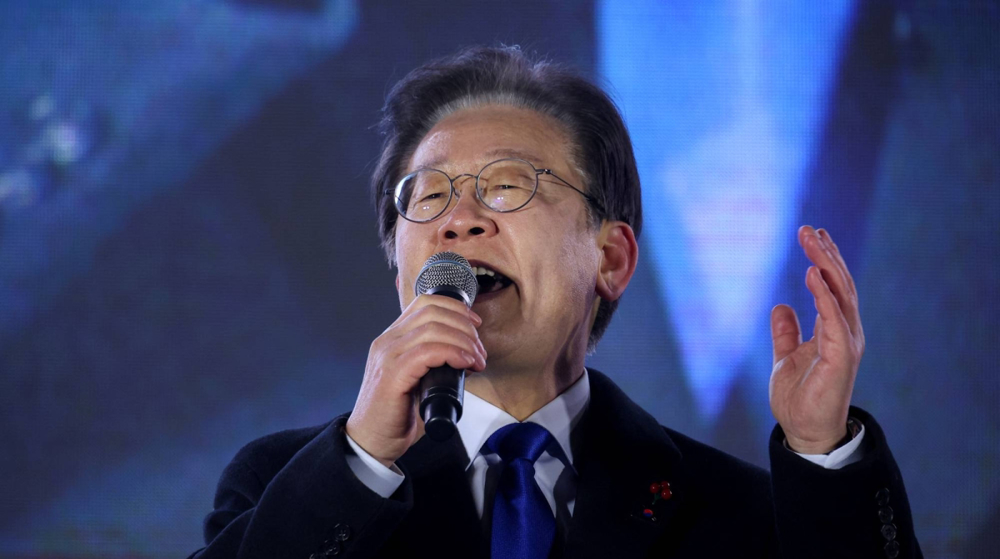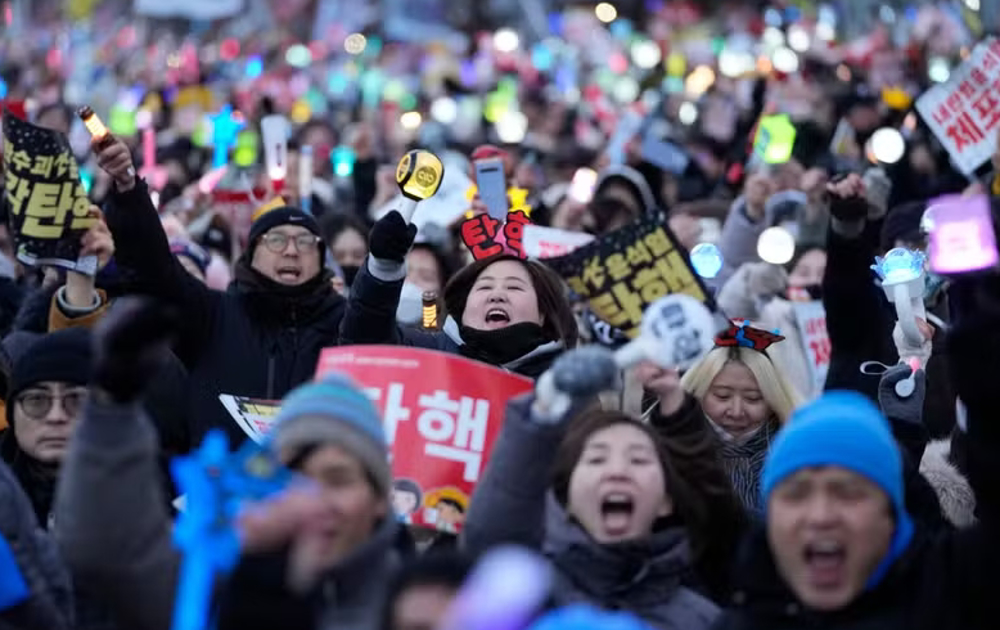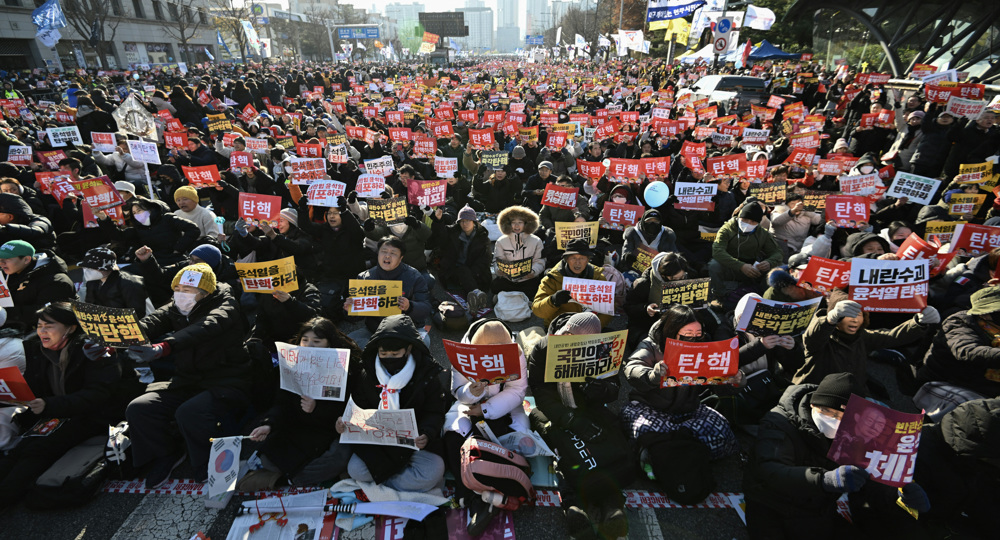South Korean president urges North Koreans to defect
South Korean President Park Geun-hye has urged North Koreans to defect to the South, two days after a North Korean soldier crossed the heavily protected border into the southern neighbor's territory.
Speaking at a ceremony in commemoration of the South Korean Armed Forces Day on Saturday, Park invited both rank-and-file troops and North Korean citizens to come to the “bosom of freedom” in South Korea.
"We will keep the road open for you to find hope and live a new life. Please come to the bosom of freedom in the South whenever you want,” President Park said in a rare message directly addressing people residing in the North.
“We are well aware of the gruesome realities you face. The universal values of freedom, democracy, human rights and welfare are the precious rights you should also enjoy,” she said, adding that there had been persistent defections, even by North Korean elites who used to support Pyongyang.
Last month, Seoul announced that North Korea's deputy ambassador in London had defected with his family to South Korea, claiming that he had been the highest-ranking Pyongyang diplomat to date to abandon the country.
On Thursday morning, a North Korean soldier crossed the tightly-kept border line into South Korea. No exchange of fire was reported during his defection.
On April 12, a dozen waitresses and their boss, all North Korean citizens who had been working at a restaurant in China, also defected to the South, making headlines as a rare group defection. Pyongyang, at the time, accused Seoul of luring and abducting the people.

A large majority of North Korean defectors are said to prefer to cross into China through its porous border and then set off toward South Korea. It is rare for North Koreans seeking to defect to venture directly into the South through the heavily controlled border.
According to official figures provided by South Korea, nearly 30,000 people from North Korea have so far managed to defect to the South since the conclusion of the 1950-1953 Korean War.
The three-year bloody war ended with a truce, not a peace accord, which has left the two countries technically at war, locked the Korean Peninsula in a cycle of military rhetoric, and separated them by the so-called Demilitarized Zone (DMZ), a strip of land stretching across the peninsula and serving as a buffer zone.
The DMZ is 250 kilometers long and about four kilometers wide, and unlike its name, it is a heavily fortified zone, guarded with armed sentries, minefields and barbed wire fences, making it one of the most protected areas in the world.
At least 19 Gazans killed by Israeli airstrikes since dawn: Medics
Leader: Iran has no proxy forces in West Asia
US fighter aircraft shot down ‘in friendly fire’ amid aggression on Yemen
Yemeni FM: Israel’s sponsors accountable for ongoing aggression on Sana’a
Eight Palestinians killed as Israel attacks Gaza school, hospitals
VIDEO | Rome, Milan host new protests in solidarity with Palestinians
Dec. 21: ‘Axis of Resistance’ operations against Israeli occupation
Spain jurists demand ties with Israel ties be cut










 This makes it easy to access the Press TV website
This makes it easy to access the Press TV website